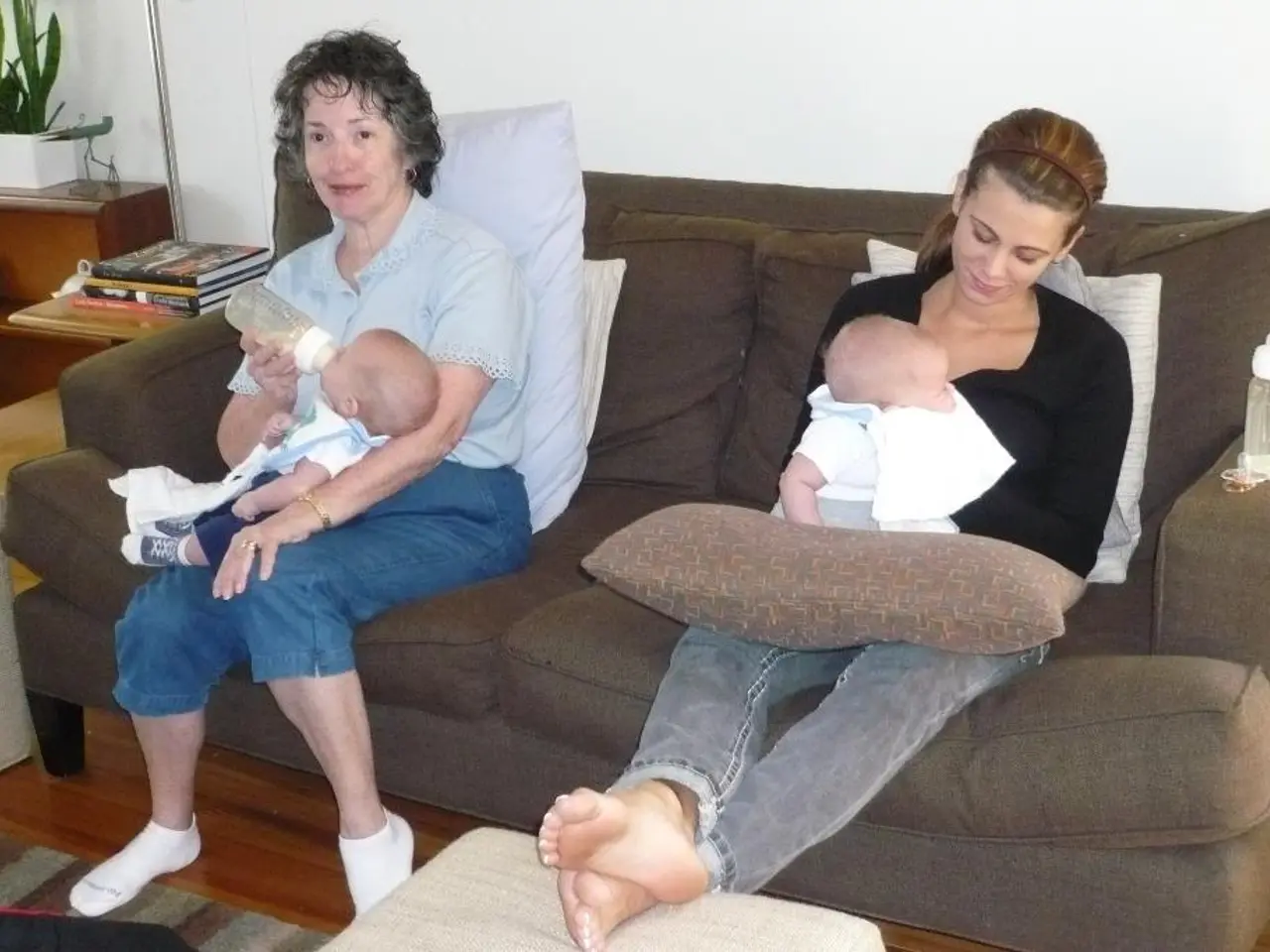Russia advocates for higher birth rates
Russia is considering significant changes to its maternity leave policies as part of efforts to counter demographic decline and encourage higher birth rates. The proposed changes, if enacted, would see an increase in maternity leave payments and potential extensions to the duration, particularly for second and subsequent children.
Currently, childcare allowance in Russia covers 40% of the mother's average salary, with a maximum of approximately 68,995 rubles per month. The paid maternity leave usually lasts around 140 days (roughly 4.5 months) for full-time students and most mothers.
However, proposed changes aim to significantly increase these payments. For first-time mothers, including students, the allowance is set to rise sharply. For instance, student mothers' allowance could rise from 12,500 rubles for 140 days to 90,000 rubles starting September 1, 2025.
For the second child, there is a proposal to increase payments to 60% of average income and extend paid leave up to 2.5 years. For the third child and subsequent ones, payments might rise to 80% of average income with leave extending up to 3 years. There is also discussion about extending paid maternity leave to three years overall and starting maternity leave from pregnancy detection.
These measures are aimed at boosting Russia’s very low birth rates, which in 2025 are critically below replacement level (fertility rate around 1.41 children per woman) despite various governmental incentives. The proposals reflect attempts to reduce financial burdens on families, particularly for larger families, by providing more income support and longer leave periods to enable parents to care for children without returning immediately to work.
The proposals also include paying childcare benefits from all employers if mothers have multiple jobs. However, concerns exist about burdens on private businesses and potential reluctance of employers to hire young women due to increased maternity-related costs.
Nina Ostanina, the chairperson of the State Duma Committee on Family, Women, and Children's Affairs, has proposed extending the paid maternity leave period to three years. Alexander Larionov, a senior researcher at the Institute of National Economic Forecasting of the Russian Academy of Sciences, has suggested boosting birth rates by increasing maternity leave payments. Larionov recommends removing the maximum payment amount and indexing payments for the fourth and subsequent children based on multiple-child payments.
A bill to allow maternity leave at any stage of pregnancy will be submitted to the Duma, although this is not a fact but a statement about a future event. Ostanina believes that extending the paid maternity leave period will motivate women to have a second and third child, while Larionov recommends raising monthly maternity leave payments for the second child to 60% of income for 2.5 years and setting the monthly payment for the third child at 80% of income for 3 years.
Read also:
- Racing for the iconic yellow jersey in the Tour de France: preparing riders for the heat
- "Female advocate for women's rights in Morocco apprehended due to allegations of claiming Allah is a lesbian"
- Examination of Calcium Propionate's Safety and Applications
- Quick Tips for Rapidly Alleviating Nighttime Nausea






